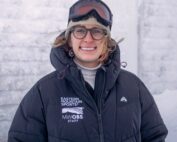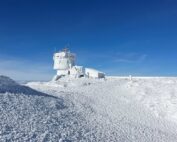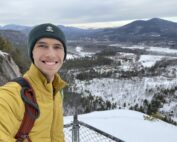From Colorado to Mount Washington: My First Days as a Climate Data Intern
By Frank Vazzano
Hello MWOBS community! My name is Frank Vazzano (he/him), and I am the winter 2025 climate data analysis intern. This is an all-new joint internship giving me the opportunity to work with scientists and science communicators at the Mount Washington Observatory, Appalachian Mountain Club (AMC), and Hubbard Brook Research Foundation (HBRF). I’m excited to tell you all about how my first shift has gone and what research I’ll be working on in the coming months as I brave the perilous weather conditions that relentlessly batter the summit.
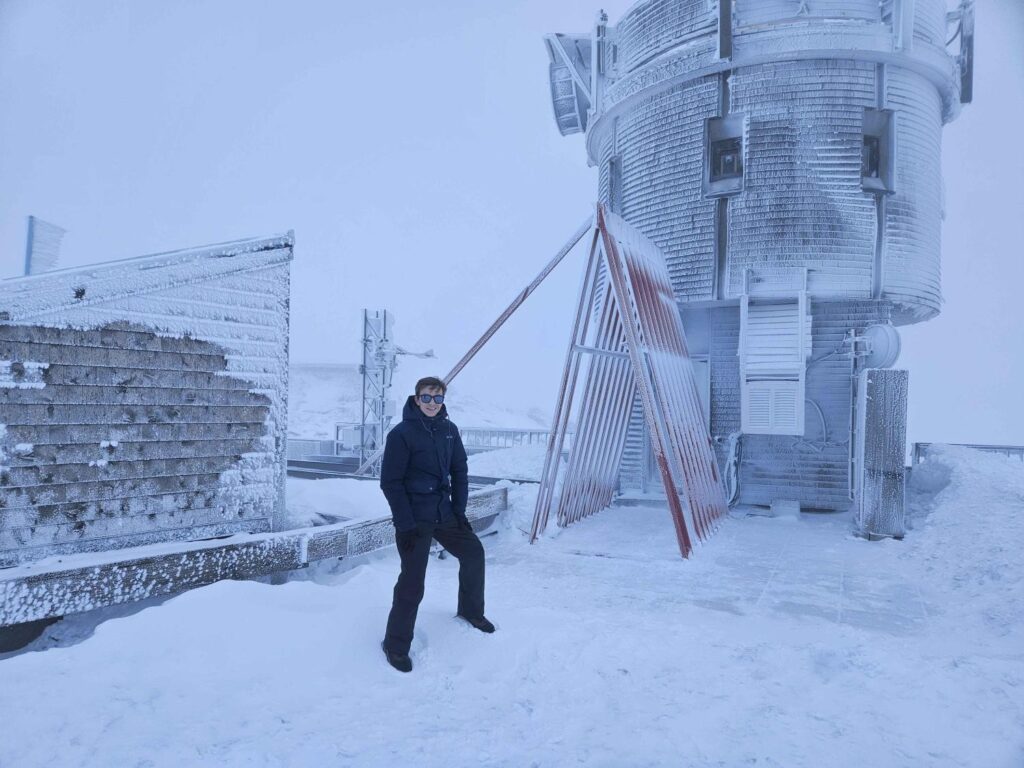
My first day on the summit!
I grew up on the “Front Range” of Colorado, at the foothills of the majestic Rockies. Those towering peaks gave me a deep appreciation of mountains and the ways in which they influence weather and climate. At the University of Colorado at Colorado Springs, I completed an undergraduate degree in Geography/Environmental Studies with a minor in Physics. My main interests revolve around climatology and hydrology, and, although my university did not offer a degree explicitly in these fields of interest, I was fortunate to have the chance to forge my own degree path while also earning a well-rounded education in Physical Geography.
When I discovered that the Mount Washington Observatory was offering an internship in climate data analysis, I jumped on the opportunity and was fortunate enough to be accepted for the position.
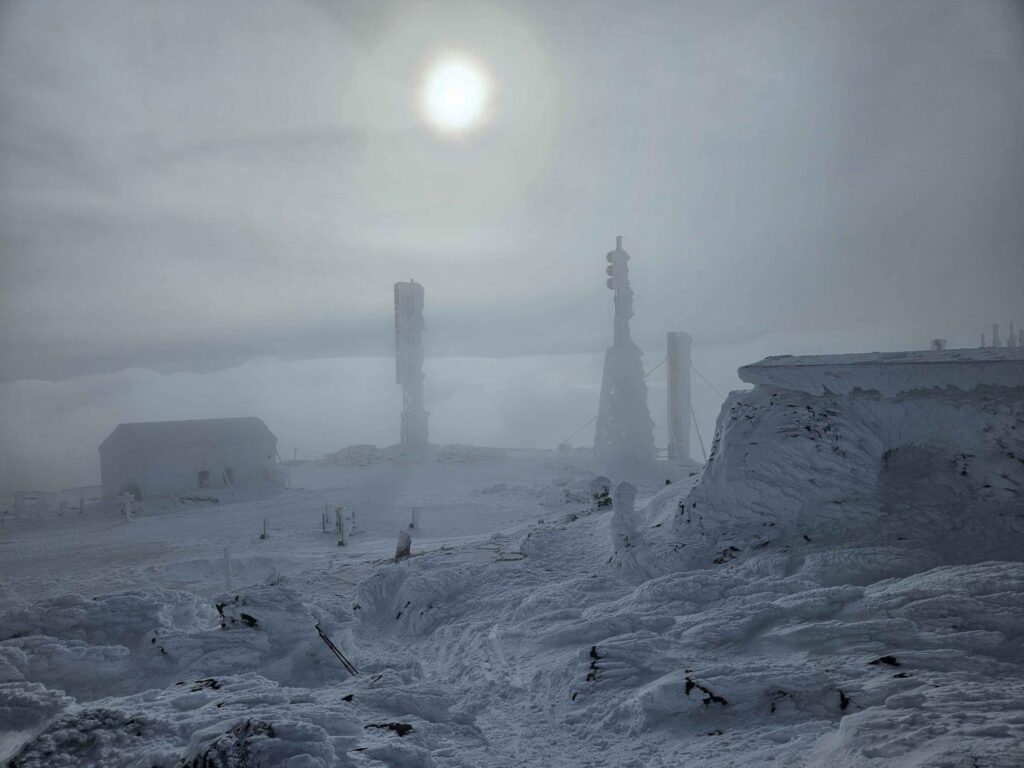
Almost every inch of every surface at the summit is covered in rime ice during winter.
Although I had never been to Mount Washington (or anywhere in New England for that matter), I have always dreamed of having the chance to experience the extreme weather the peak is famous for. I was not disappointed in this regard because on the second day of my first shift, the tower Pitot tube measured a staggering 142 m.p.h. wind gust! Throughout this same day, there were consistent sustained winds above 100 m.p.h. and windchill hovered around 60 below all day. I’ve already been told I’m lucky to experience these kinds of conditions at all, let alone on my second day as an intern!
My research involves examining climate data from Mount Washington Observatory, Appalachian Mountain Club, and Hubbard Brook and extrapolating long-term trends from that data. I’ll be looking at certain themes or areas of interest for each month, such as thaw events (days above 32°F) for January and trends in streamflow for April.
This research is intended to highlight how climate change is affecting the White Mountains while also making the data more accessible and comprehensible for the general public by breaking down these abstract topics into bite-sized infographics and tables, which will be published in partnership between MWOBS, AMC, and HBRF in a new climate almanac in fall 2025.
That’s all for now! Thanks for reading and be sure to keep an eye out for my next progress report.
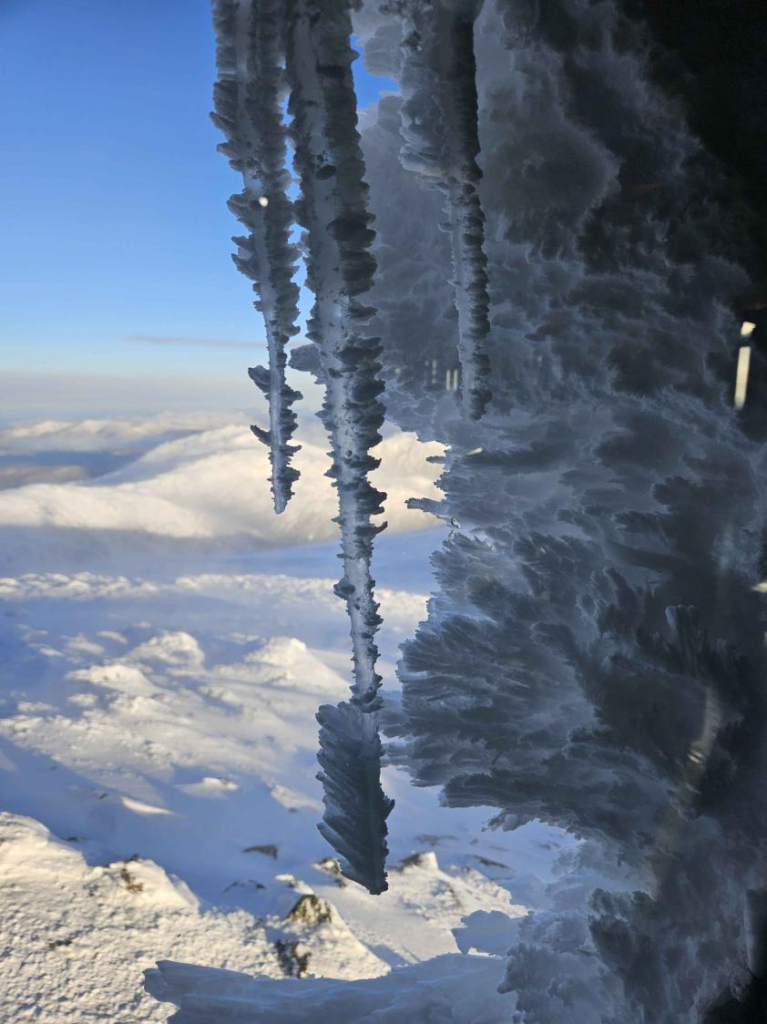
Huge icicles grow their own rime ice.
Geologist Climbs Rock Pile, Looks Up
Geologist Climbs Rock Pile, Looks Up By Bailey Nordin Hello from the summit of Mount Washington! My name is Bailey Nordin, and I am the newest Weather Observer and Education Specialist joining the team
Life on Top of New England
Life on Top of New England By Anna Trujillo Hi everyone! My name is Anna Trujillo and I am one of the interns for the MWOBS winter season. I am super excited for the
I Haven’t Seen a Tree in 12 Days
I Haven’t Seen a Tree in 12 Days By Ryan Steinke A photo of me hiking Cathedral Ledge during my first off week. Hi everyone, my name is Ryan Steinke, and I

